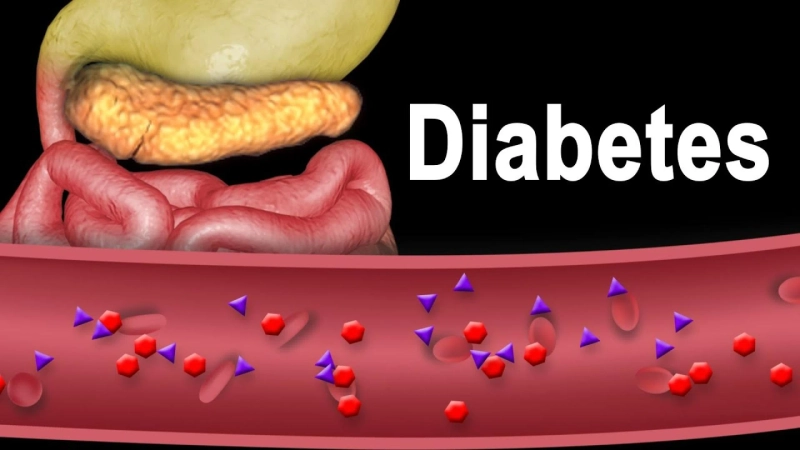Diabetes Disease Overview:
Diabetes Disease is a chronic metabolic disorder characterized by high blood sugar levels over an extended period. This condition arises either due to insufficient insulin production or the body's ineffective use of insulin. It is a widespread health concern globally, impacting millions of individuals across various age groups.
Diabetes is at war with people's lives in a covert conflict that goes unnoticed. It targets the core of human health with stealth and cunning, harming every organ in the process. Millions of people's lives are in danger as it causes difficulties in everything from arteries to the eyes. Diabetes is a silent but dangerous condition that can be harmed by a variety of conditions, including heart disease and nerve damage. It is not an option to ignore this powerful adversary because of the dire repercussions.
The Market Competitors Listed Below are Revolutionizing Healthcare with Innovative Diagnostic Inventions:
Menarini DiagnosticsTaiDoc TechnologyAbbott LaboratoriesEKF Diagnostics Holdings plcNova BiomedicalDexcom Inc.Trinity BiotechSinocare Inc.Medtronic plcAbbott LaboratoriesArkray Inc.Senseonics Holdings, Inc.Siemens HealthineersNipro CorporationAscensia Diabetes Care Holdings AGRoche DiagnosticsBecton, Dickinson, and Company (BD)Nemaura Medical Inc.Bio-Rad LaboratoriesAscensia Diabetes CareYpsomed AGOthersDiagnostic Analysis:
Diagnosing diabetes involves a series of tests aimed at measuring blood glucose levels. Fasting blood sugar tests, oral glucose tolerance tests, and glycated hemoglobin (A1c) tests are common diagnostic methods. These tests help healthcare providers assess an individual's glucose metabolism and determine the presence and severity of diabetes.
Treatment Analysis:
Managing diabetes primarily focuses on regulating blood sugar levels to prevent complications. This often includes lifestyle modifications such as adopting a balanced diet, engaging in regular physical activity, and, in some cases, losing excess weight. Medications like oral hypoglycemic agents or insulin injections are also prescribed based on the severity of the condition.
Symptoms of Diabetes:
Common symptoms of diabetes include increased thirst and hunger, frequent urination, unexplained weight loss, fatigue, blurred vision, and slow wound healing. These indicators prompt individuals to seek medical attention for diagnosis and treatment.
Diabetes & its Types:
There are several types of diabetes. Type 1 diabetes is an autoimmune condition where the body's immune system destroys insulin-producing cells in the pancreas. Type 2 diabetes, the most prevalent form, occurs when the body becomes resistant to insulin or doesn't produce enough. Gestational diabetes develops during pregnancy and usually resolves after childbirth. Other types include Maturity Onset Diabetes of the Young (MODY) and Latent Autoimmune Diabetes in Adults (LADA).
Regulatory Framework:
The regulatory framework for diabetes management encompasses guidelines for diagnostic procedures, treatment protocols, and the approval of medications and devices. Regulatory bodies like the Food and Drug Administration (FDA) in the United States set standards to ensure the safety and efficacy of diabetes-related products.
Diagnostic Techniques:
In addition to blood glucose tests, advanced diagnostic techniques include continuous glucose monitoring (CGM) systems and hemoglobin A1c testing. These technologies provide more comprehensive data on blood sugar trends, enabling better management strategies.
Access More Information:
https://www.diseaselandscape.com/chronic/diabetes-market-access-insights
Treatment Techniques:
Treatment techniques involve a multifaceted approach. Insulin therapy, either through injections or insulin pumps, is crucial for individuals with Type 1 diabetes. Type 2 diabetes management may involve oral medications, injectable medications, or a combination of both. Lifestyle modifications, including dietary adjustments and regular exercise, play a pivotal role in treatment.
Clinical Assessment:
Clinical assessment in diabetes involves regular monitoring of blood sugar levels, assessment of complications, and evaluation of overall health. Healthcare providers conduct comprehensive examinations, including eye exams, kidney function tests, and foot examinations, to detect and address potential complications.
Market Trends Analysis:
The diabetes management market is witnessing significant advancements in technology, with the introduction of innovative glucose monitoring devices, insulin delivery systems, and digital health platforms. Continuous research and development aim to enhance the effectiveness and convenience of diabetes management.
Regional Insights:
The prevalence and management of diabetes vary by region. Factors such as lifestyle, genetics, and healthcare infrastructure influence the incidence and outcomes of diabetes. Different regions may have distinct approaches to diabetes prevention, diagnosis, and treatment.
Conclusion:
This content piece provides a comprehensive overview of diabetes, covering various aspects from diagnosis to treatment, symptoms, types, regulatory framework, and regional considerations.
Browse Through More Chronic Diseases Research Reports.
Related Reports:
Insights and Trends in the Global Landscape of Lung Cancer Services
The symptoms, transmission, and precautions of Monkeypox
The Myths of Pneumonia: Symptoms, Causes, and Prevention Methods
Navigating the Complex Autoimmune Disorder of Lupus
Ringworm Comprehensive Guide: Symptoms, Causes, and Treatment


